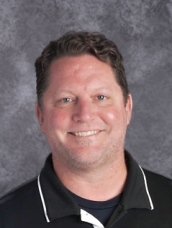PRESIDENT’S BLOG: A STORY OF EMPATHY

By Steve Schmutz
“I think empathy is only developed through your life’s experience. It’s not something that’s really endowed on you. Every passing year—with, perhaps, every passing mistake you make, you develop more of a sense of being able to see life through other people’s eyes. It’s going to make you a more effective parent, a more effective colleague, and a more effective partner.”
–Satya Nadella, CEO of Microsoft
I often listen to Pandora while I exercise but periodically I visit the wonderful world of podcasts. My list of favorites is relatively short and includes anything by Malcolm Gladwell, Seincast, a podcast about the show Seinfeld, and Freakonomics. The March 11, 2018 podcast of Freakonomics, hosted by noted author and journalist Stephen Dubner, featured an interview of Microsoft CEO Satya Nadella. The interview took place in the Fall of 2017 following the release of Nadella’s book, Hit Refresh: The Quest to Rediscover Microsoft’s Soul and Imagine a Better Future for Everyone. As is the case with nearly all of his interviews, Dubner spent time discussing Nadella’s personal story in connection with his professional journey.
I knew very little about Satya Nadella prior to listening to the podcast. His story is compelling. He was born and raised in India, the son of a civil servant father and Sanskrit professor mother. He attended the renowned Hyderabad Public School and the Manipal Institute of Technology. His classmates included future CEO’s of Google, Adobe, MasterCard, and Nokia. While at MIT, he earned a degree in engineering, followed by advanced degrees in computer science and business from the University of Wisconsin-Milwaukee and the University of Chicago, respectively. His arrival in the United States in the early 1990s coincided with a series of events which were changing the face of the world: the Fall of the Berlin Wall and the end of communist occupied Eastern Europe, the technology boom in the US, including the rise of Apple and Microsoft and numerous Silicon Valley tech companies in the late 1980s. There was also an open door policy for immigrants from India to the US following the end of British rule in India along with what Nadella describes as an “enlightened American immigration policy.”
Nadella was one of countless Indian engineering and computer science students in India who attended the nearly two dozen IT schools across their country. As India went through a cultural revolution in the 1990s, these students moved to high tech centers in India such as Bangalore, or immigrated to the US to take part in the technology industry in Silicon Valley. It was during his move to the Bay area to work for Sun Microsystems that Nadella married his wife. They started their family after he moved to work for Microsoft in the mid-1990s. During his interviews with Microsoft, Nadella was asked situational questions by the panel. He recalls this question when he was a twenty-year-old applicant: What would you do if you see a baby on the street crying after having fallen down?
The response from Nadella reveals much of where he was then as a young man. As he reflects on his response now as a man in his early fifties, he is amazed at how life has reshaped him, or as he borrows from the title of his book, how life has “hit refresh” for him. Nadella recalled his answer in this way: “I answered, thinking this is some trick question, maybe there is some algorithm that I’m missing, and said, ‘I’ll call 911,’ only to have the manager get up and walk me out of the room saying, ‘that’s the absolute worst answer. If you see a baby falling down, you pick them up and hug them.’ And I was devastated because I remember thinking about it and I said, ‘How could I not get that?’ And that’s when you say, ‘Well, you know what, life has a way of teaching you.’”
How did Satya Nadella learn about empathy? His life changed with the birth of the first of his three children. His oldest son, now in his early twenties, was born with severe cerebral palsy. And while he observed how his wife, Anu, adjusted so naturally to the challenges they faced head-on, Nadella recalls himself thinking: “Why did this happen to us? What happened to me? And it’s only by observing my wife really step up, give up her career, and do all things she was doing to care for our son, that’s when I realized nothing happened to me. Really something has happened to my son, and it’s time for me to step up and see life through his eyes, and do what I should do as a parent and as a father. So that’s, I think, perhaps, the biggest lesson for me around empathy.”
Satya Nadella was named the third chief executive in the history of Microsoft in 2014, following Bill Gates and Steve Ballmer. During his time as CEO, Microsoft has seen dramatic growth in their stock performance, made exciting announcements in mergers and acquisitions, and they continue to explore new areas for growth. Nadella credits his wife for introducing him the books Non Violent Communication, by Marshall Rosenberg, and Mindset, by Carol Dweck. Both books had a profound influence on his life as a husband, father, and working professional. Today, he oversees a company with over 120,000 employees worldwide.
Towards the conclusion of the interview, Stephen Dubner asked Satya Nadella to share information about his book and the future of Microsoft. His response: “If there is anything we can learn, I think—whether it’s for us as individuals, whether it is us as institutions or organizations or as societies—is hit refresh. Nothing can be taken for granted. There’s no such thing as a perpetual motion machine. What you have to do is be great at being able to hit refresh at the crucial times and know that not every one of those moments of refresh is going to work out. But that should not dissuade you from going after the next opportunity you get.”
Several years ago I taught an Economics course at AMHS and asked my students to interview someone in their life who was involved in a business-related field. The purpose of the project was for my senior students to ask questions about the educational journey and life experiences these individuals would be willing to share along with any wisdom or advice they might offer. I recall one profile of a CEO who majored in Russian Literature while in college. The advice he shared with the student was to follow your passion and interests even if that meant reading the novels of Tolstoy, Chekhov, and Dostoevsky before embarking on a career in business. The CEO said it provided him joy and fulfillment and because of this level of interest he was a successful student and he went on to pursue an MBA. He told the student how much his advisor told him not to major in Russian Literature—what would a person possibly do with this major, he was told—but he respectfully disagreed and forged his own path.
At AMHS we strive to prepare our students to answer the call of leadership, to serve others as Christlike men and women who will change the world. Not only does this take courage, it requires one to act courageously. Often that courage takes the form of looking at the world through a different lens and learning from our life experience. This may mean learning from our mistakes or our failures as much as we learn from our achievements and successes. It means learning compassion, understanding, and empathy.
